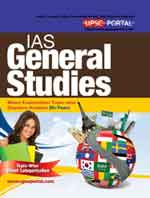
(Sample Chapters) IAS Mains: General Studies
The Revolt of 1857
1. ‘What began as a fight for religion ended as a war of independence, for
there is not the slightest doubt that the rebels wanted to get rid of the alien
government and restore the old order of which the kind of Delhi was the rightful
representative’? Do you support this viewpoint? (99/I/2a/15)
2. What administrative changes were introduced in India after 1858? What were
the objectives of these changes? (01/I/1b/30)
Rise of Indian Nationalism
1. Give a critical account of the Ramakrishna Mission with special reference
to the role played by Swami Vivekananda. (90/I/3c/10)
2. Discuss the role of the Theosophical Society in the history of religious
movement in India. (91/I/3c/10)
3. What were the contributions of the Arya Samaj to social and religious
movements of India? (92/I/3c/10)
4. Discuss the various aspects of social legislation introduced by the East
India Company in the first half of the nineteenth century. (95/I/2b/15)
5. ‘Swami Vivekananda might well be called the father of Indian nationalism’.
Elucidate. (95/I/3c/10)
6. The name of Raja Ram Mohan Roy stands foremost in the field of religious
and social reforms. Elucidate. (97/I/3b/10)
7. Assess the contributions of Ishwarchandra Vidyasagar to the making of
modern India. (99/I/3a/10)
8. In what way did Ramakrishna infuse a new vigour and dynamism into
Hinduism? (99/I/3b/10)
9. Characterise the main features of Indian Renaissance. (06/I/2c/15)
10. What was the character of socio-religious reforms in the 19th Century and
how did they contribute to the national awakening in India? (250 words)
(07/I/1a/30)